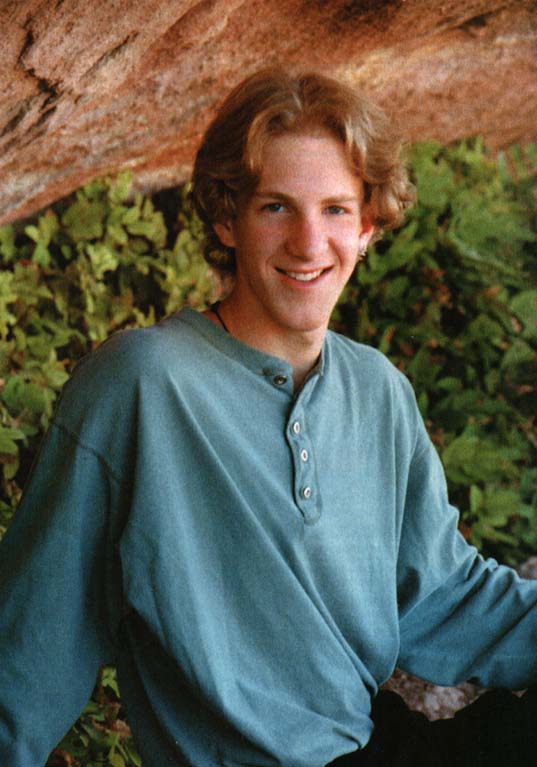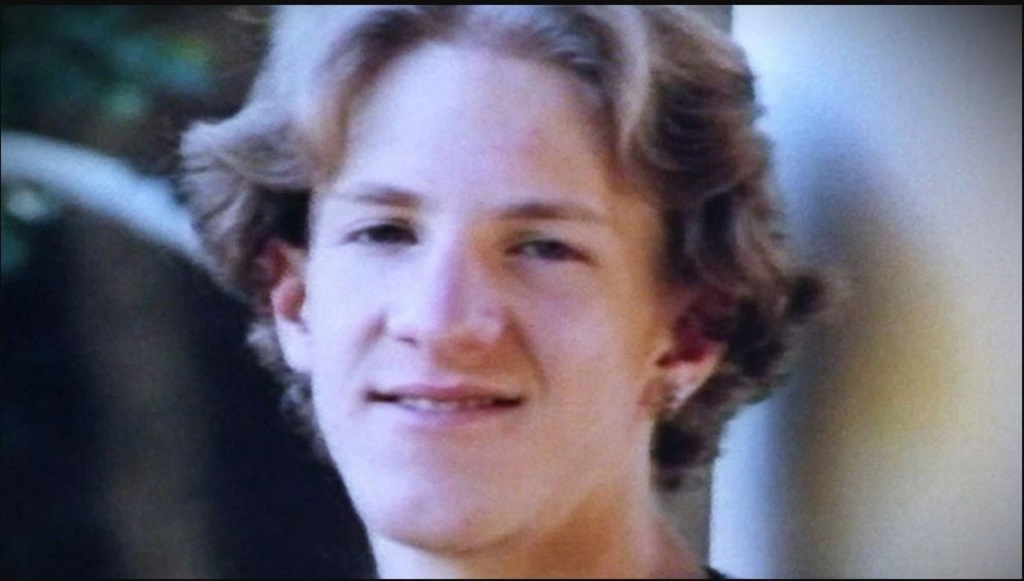The Complex Life Of Dylan Klebold: Before & After Columbine
Can a single day, a singular act of violence, truly define a life? Dylan Klebold's story challenges us to confront this question, forcing a reckoning with the complexities of human behavior and the shadows that can lurk within even the most ordinary lives. His name, inextricably linked to the Columbine High School shooting of 1999, remains a potent symbol of tragedy, a chilling reminder of the fragility of peace, and a catalyst for ongoing conversations about mental health, gun control, and the forces that shape our youth.
The narrative of Dylan Klebold is not merely a recounting of a horrific event; it is an exploration of the forces that converged to create a perfect storm of despair and violence. It is an attempt to understand the roots of a tragedy that continues to reverberate through the halls of academia, the corridors of power, and the very fabric of American society. In dissecting his life, we endeavor to understand the influences, the relationships, and the internal struggles that ultimately led to that fateful day.
Dylan Bennet Klebold's life, though tragically cut short, leaves behind a complex tapestry woven with threads of intelligence, creativity, and, ultimately, profound despair. To fully grasp the gravity of the events that transpired at Columbine High School, a deeper understanding of his life, his relationships, and his internal battles is essential. The following table provides a concise overview of key biographical information, serving as a foundation for further exploration:
| Attribute | Details |
|---|---|
| Full Name | Dylan Bennet Klebold |
| Date of Birth | September 11, 1981 |
| Place of Birth | Lakewood, Colorado, USA |
| Parents | Thomas Klebold, Susan Klebold |
| Siblings | One older brother, Byron |
| Education | Columbine High School |
| Occupation | Student |
| Date of Death | April 20, 1999 |
| Cause of Death | Suicide |
| Known For | Columbine High School shooting |
| Notable Relationships | Eric Harris |
| Known Mental Health Struggles | Depression, Social Anxiety |
| Legal Status | Deceased, subject of legal and public scrutiny |
| Website for further study | Wikipedia |
Dylan Klebold's early years, spent in Lakewood, Colorado, painted a picture of a seemingly ordinary upbringing. Born on September 11, 1981, he was raised in a middle-class home, the younger of two sons. His parents, Thomas and Susan Klebold, were described as loving and supportive, providing a nurturing environment that, on the surface, appeared to foster a stable and secure childhood. He attended elementary school in the Denver area, demonstrating an aptitude for learning and excelling academically. However, beneath this veneer of normalcy, subtle cracks began to appear. Reports indicate that, even at a young age, Dylan exhibited traits of introversion and struggled with feelings of isolation.
As Dylan progressed into his teenage years, the subtle fissures in his emotional landscape began to widen. While his academic performance remained consistent, his social life became increasingly challenging. He often felt like an outsider, struggling to forge meaningful connections with his peers. This sense of alienation, a common experience for many adolescents, was amplified in Dylan's case, leading to a growing sense of inadequacy and a deepening sense of despair. This internal struggle was a significant factor in shaping his path.
The most crucial and complex relationship in Dylan's life was undoubtedly with Eric Harris. The two met during their teenage years and quickly formed a close bond, a friendship that would ultimately lead to the tragic events of April 20, 1999. Their personalities, though seemingly contrasting at times, complemented each other in ways that were both alluring and dangerous. While the precise nature of their dynamic remains a subject of debate, it is undeniable that their relationship played a pivotal role in the unfolding tragedy.
April 20, 1999, stands as an indelible mark on American history, a date seared into the collective memory. On that day, Dylan Klebold and Eric Harris unleashed a meticulously planned attack on Columbine High School, an act of violence that sent shockwaves across the nation and beyond. The attack was not a spontaneous act of rage; it was a carefully orchestrated assault, the culmination of months of planning, fueled by a potent cocktail of anger, despair, and a disturbing fascination with violence.
The details of the Columbine shooting are etched in the public consciousness. The two students, armed with an arsenal of firearms and homemade explosives, entered the school with a singular, devastating purpose. Their rampage resulted in the deaths of 13 people, including 12 students and one teacher, and left 24 others wounded. Before law enforcement could intervene, Klebold and Harris took their own lives, ending the carnage but leaving behind an unfillable void.
The Columbine tragedy was a watershed moment, a stark reminder of the fragility of life and the devastating impact of violence. The attack prompted immediate and widespread condemnation, sparking intense debates about gun control, school safety, and the role of mental health in youth violence. The events of that day sent ripples through society, prompting profound changes in school policies, security measures, and mental health initiatives across the nation.
The aftermath of the Columbine shooting saw a profound and multifaceted impact on American society. The immediate response was one of shock, grief, and disbelief. The media descended upon Littleton, Colorado, transforming the quiet suburban town into the epicenter of a national tragedy. The coverage was relentless, the images and narratives etched into the public consciousness. This intense media scrutiny fueled debates about the responsibility of the press in portraying such events, raising critical questions about sensationalism, accuracy, and the potential for the media to influence public perception.
The reverberations of Columbine extended far beyond the immediate community. The incident triggered a renewed and intensified debate about gun control. Advocates for stricter gun laws seized upon the tragedy to argue for reforms, while opponents of such measures staunchly defended the right to bear arms. The debate, fueled by strong emotions and deeply held beliefs, continues to this day. This brought a wave of change within the nation's educational system, it increased focus on the security measures, the introduction of metal detectors, and the implementation of active shooter drills.
The events at Columbine High School also forced a national reckoning with the issue of mental health. The tragedy highlighted the urgent need to address mental health concerns among youth, prompting discussions about access to mental health services, early intervention strategies, and the reduction of stigma associated with mental illness. The warning signs of mental distress, often subtle and easily overlooked, were brought into sharp focus. The Columbine tragedy became a catalyst for efforts to identify and address the root causes of youth violence and provide support for individuals struggling with mental health challenges.
The tragedy at Columbine served as a brutal reminder of the importance of recognizing the warning signs of mental distress. Dylan Klebold, like Eric Harris, exhibited indicators of emotional turmoil that, in retrospect, were tragically evident. Dylan's struggles with isolation and depression, combined with his reported feelings of inadequacy, created a vulnerability that, unchecked, spiraled into a catastrophic outcome.
The media's role in shaping public perception of Dylan Klebold and the Columbine incident cannot be overstated. The coverage, often sensationalized and focused on the graphic details of the attack, contributed to a complex and often distorted understanding of the events and the individuals involved. The sensationalized framing of the shooters as anti-heroes, particularly in some corners of the internet and media, led to a disturbing fascination and, in some cases, even admiration.
The legacy of Dylan Klebold is a complex and multifaceted one, marked by tragedy, controversy, and enduring questions. The events of April 20, 1999, have left an indelible mark on American society, prompting ongoing conversations about mental health, gun control, school safety, and the societal responsibilities surrounding youth. The need for prevention, understanding, and proactive intervention remains paramount.



Detail Author:
- Name : Brannon Murphy
- Username : jdietrich
- Email : quinton78@cummings.com
- Birthdate : 1988-10-31
- Address : 7249 Bergnaum Lights Port D'angelofort, KS 13337
- Phone : (878) 767-2918
- Company : Dietrich, Balistreri and Douglas
- Job : Ship Carpenter and Joiner
- Bio : Vitae perspiciatis sed aspernatur nostrum consectetur. Ut aperiam tempora nostrum reiciendis qui. Iste aperiam harum neque id ex. Quo placeat aut repellat hic ex.
Socials
linkedin:
- url : https://linkedin.com/in/golden3420
- username : golden3420
- bio : Voluptatibus aut et quia quas.
- followers : 1647
- following : 1967
instagram:
- url : https://instagram.com/reilly2016
- username : reilly2016
- bio : Aut delectus earum voluptatem. Et nihil natus non sit.
- followers : 4633
- following : 2330
twitter:
- url : https://twitter.com/greilly
- username : greilly
- bio : Expedita temporibus totam et enim. Nihil vitae reprehenderit beatae non. Voluptatem repellendus possimus dolores aut voluptatem dolorum sed.
- followers : 5736
- following : 655
facebook:
- url : https://facebook.com/reillyg
- username : reillyg
- bio : Ea enim dicta debitis. Aut dolor sit sapiente recusandae. Aut nam ipsam soluta.
- followers : 6347
- following : 438
tiktok:
- url : https://tiktok.com/@reilly1970
- username : reilly1970
- bio : Sit laboriosam sint aperiam vero amet sit. Ipsum consequatur ullam esse totam.
- followers : 6341
- following : 2031